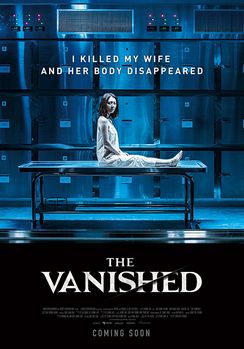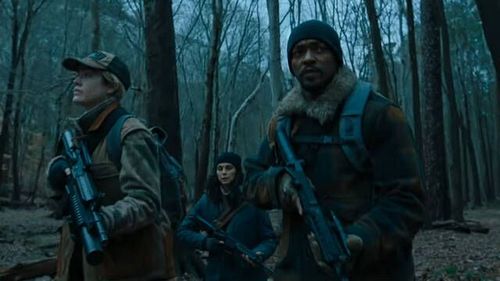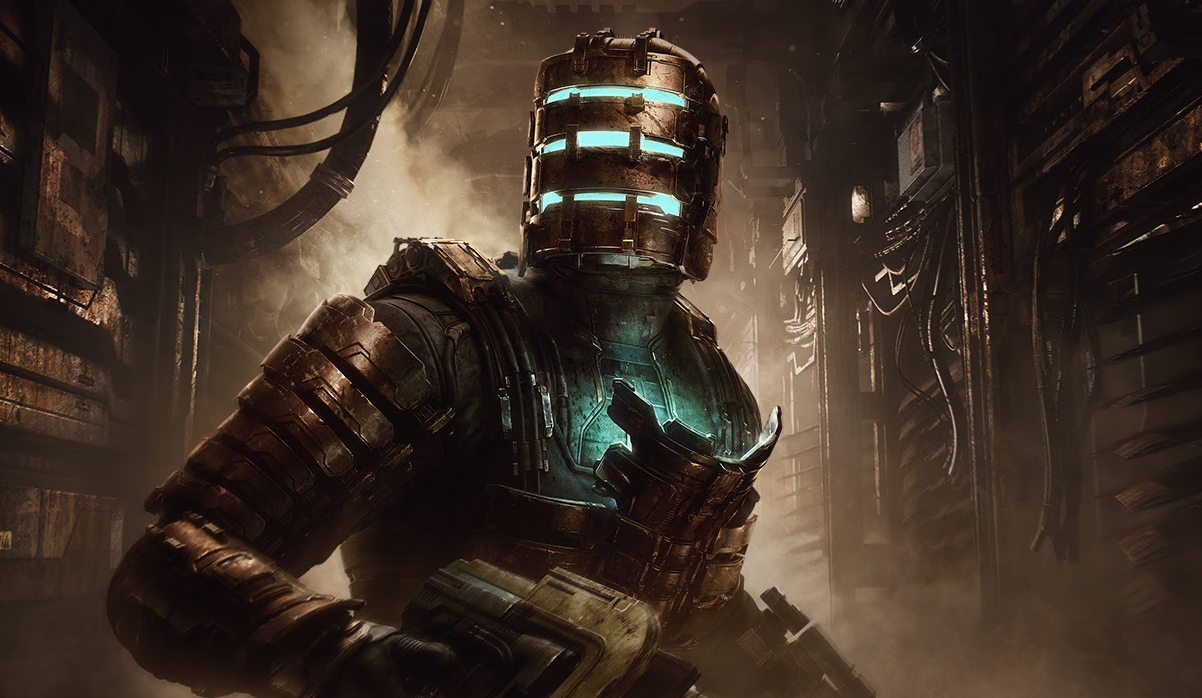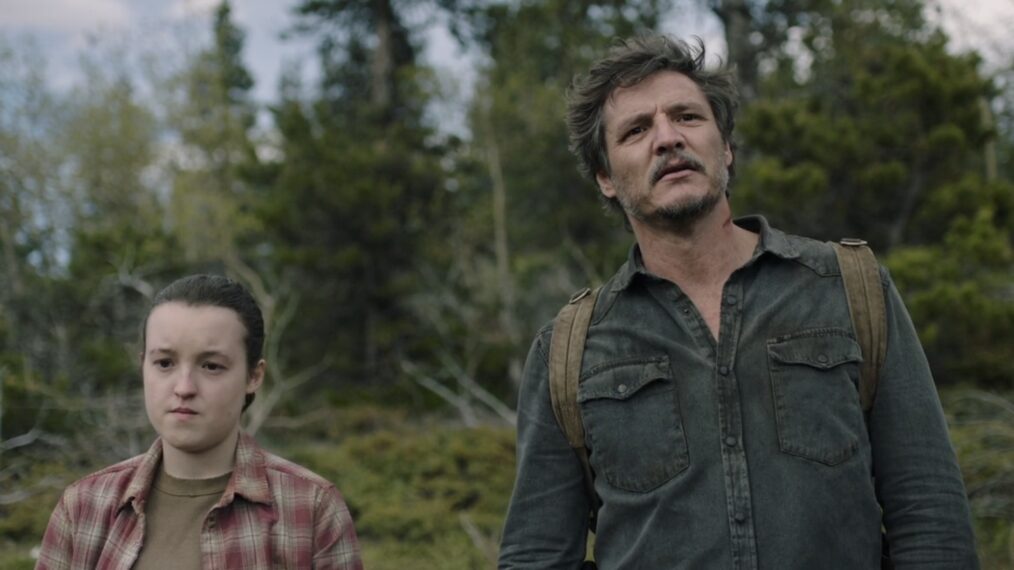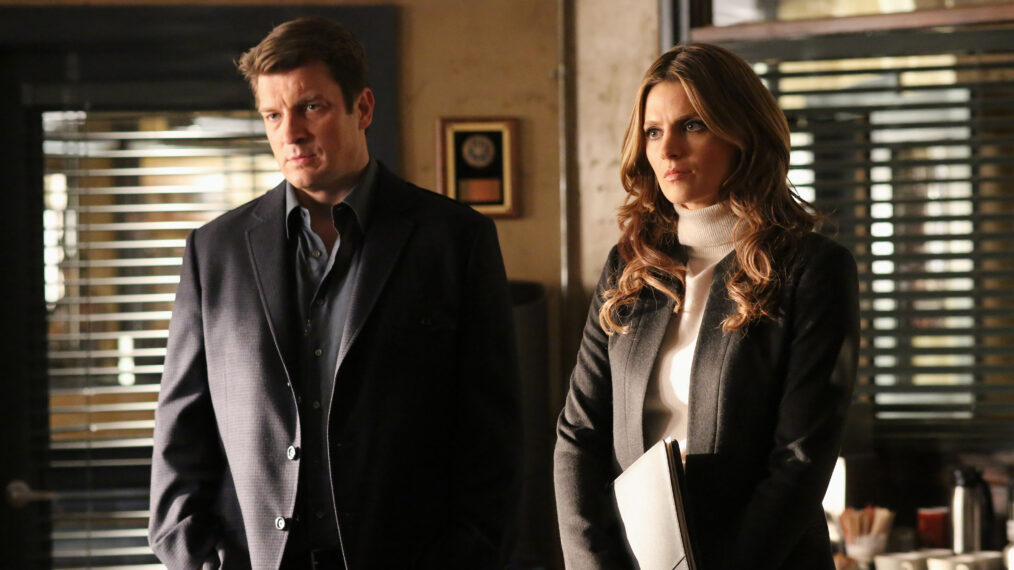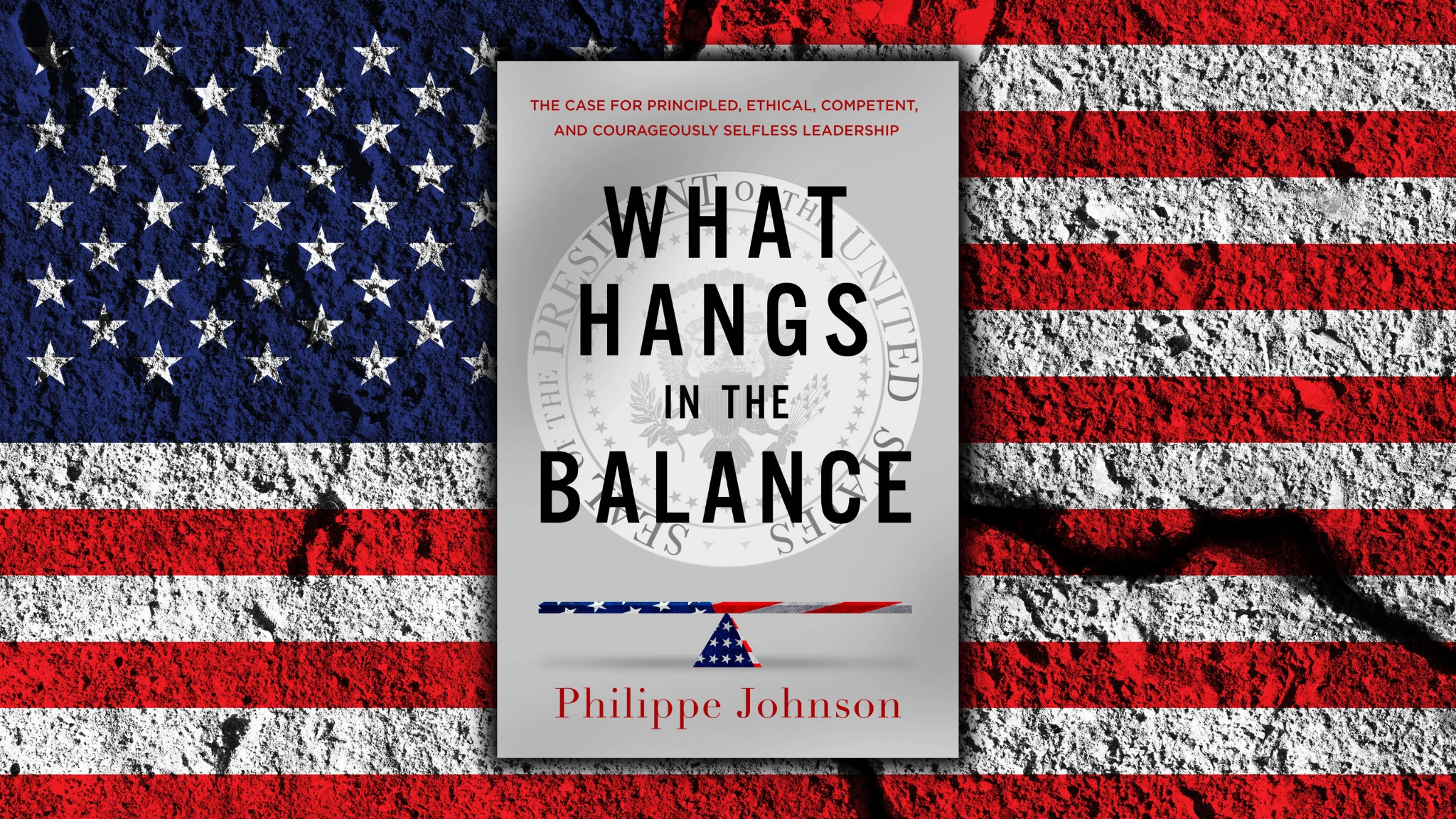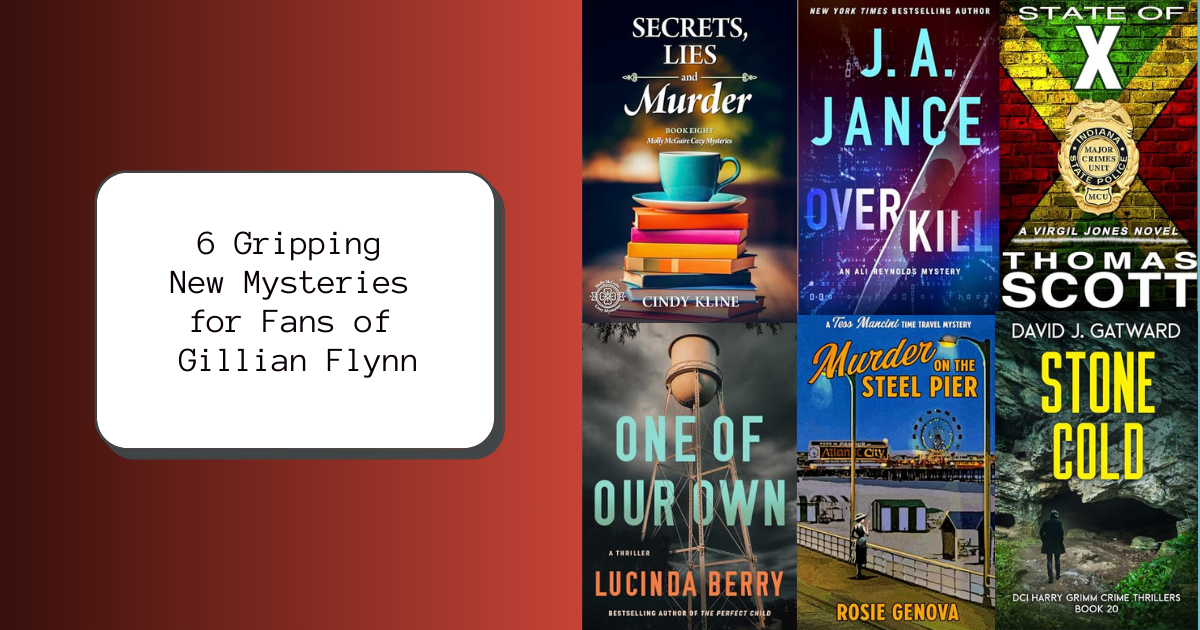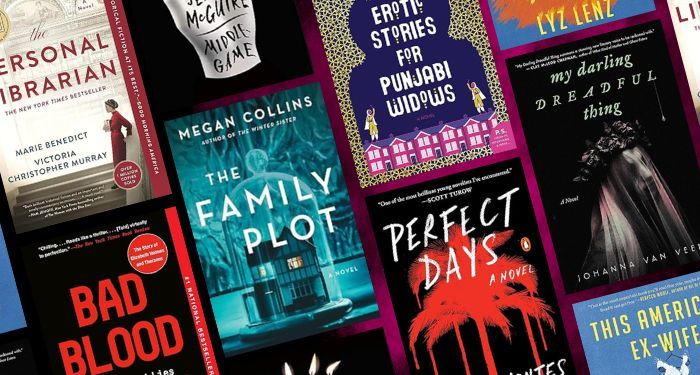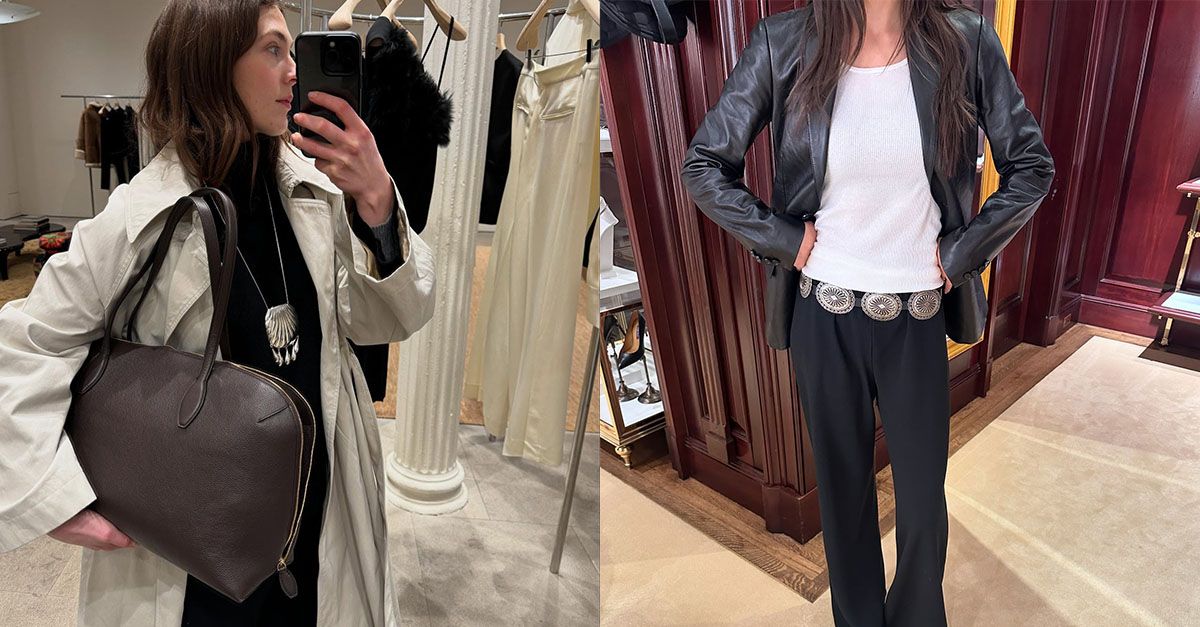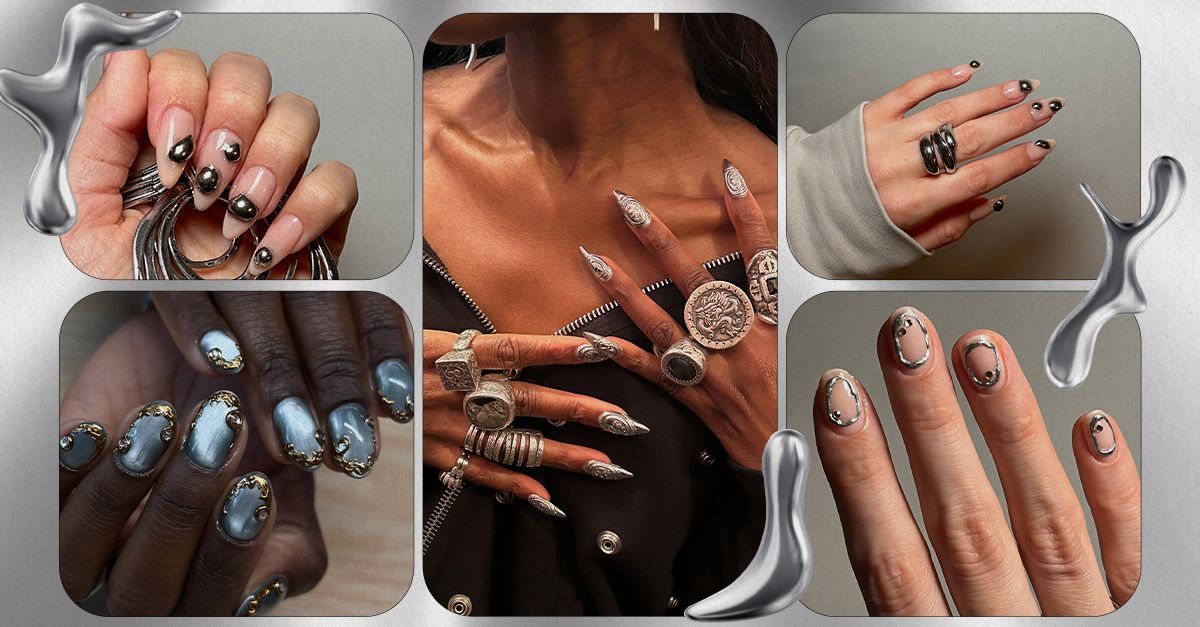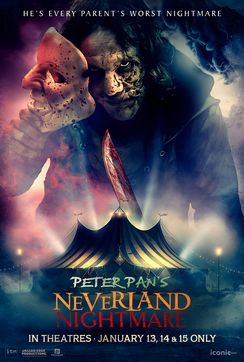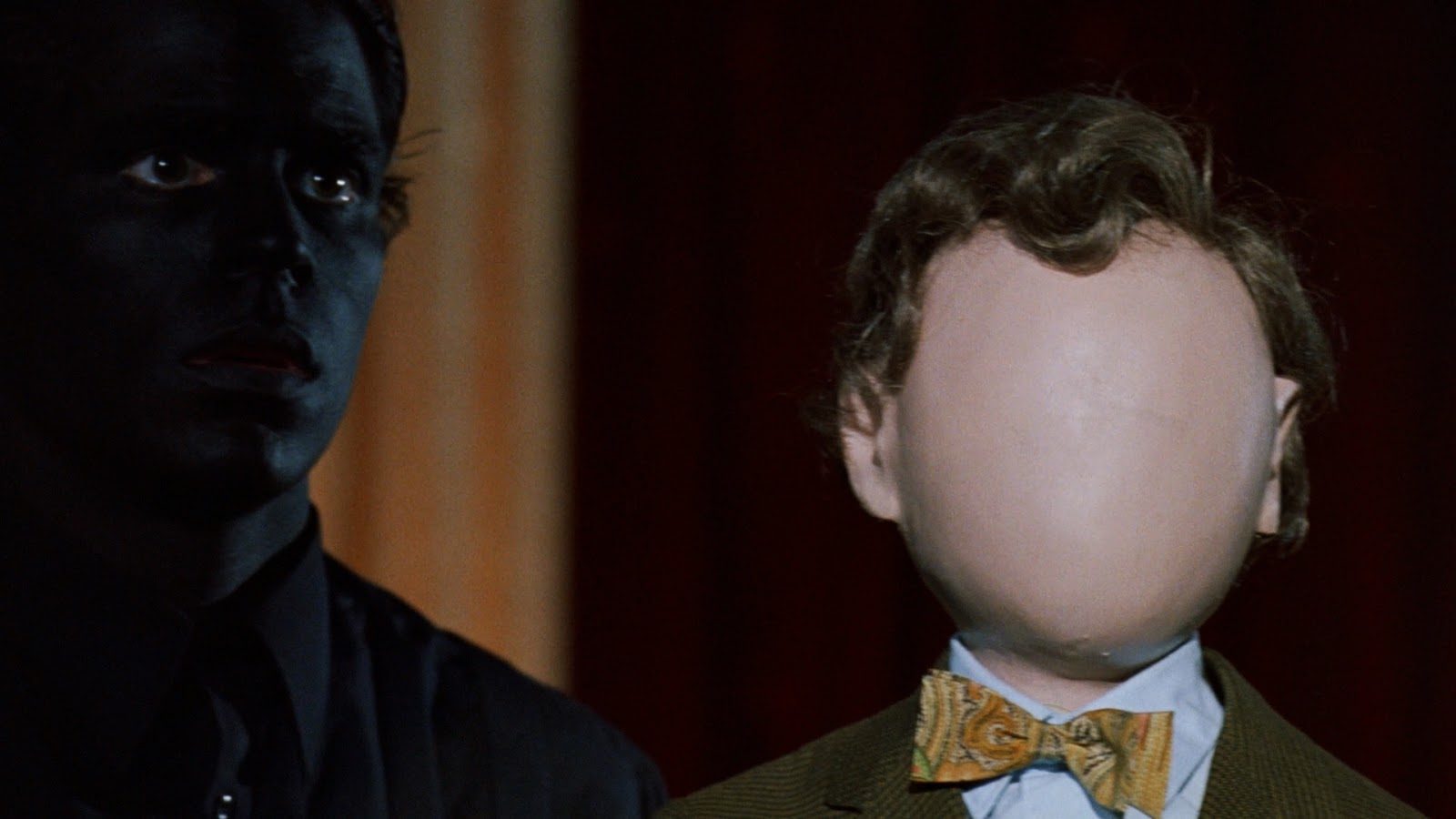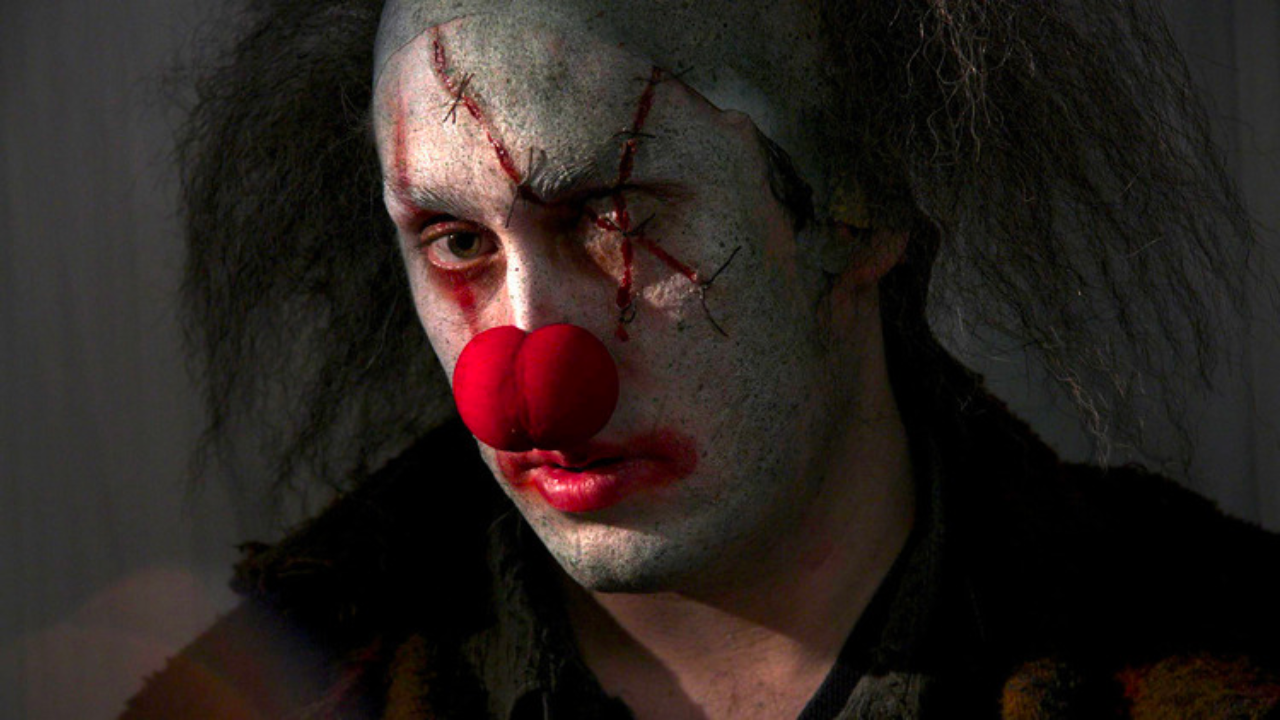
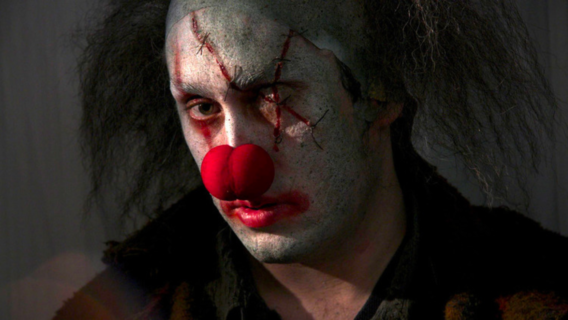
March is the month to celebrate all things Irish, with St. Patrick’s Day celebrated all over the globe on March 17th. The Irish horror film industry, although relatively new, is experiencing somewhat of a boom in recent years. And it makes sense, as Ireland is the motherland of Halloween with the Irish festival of Samhain, the birthplace of horror writers such as Bram Stoker, Sheridan Le Fanu, and Oscar Wilde as well as being the origin of terrible creatures such as the Changeling, the Banshee (Bean Sídhe) and the Púca. So, in honor of the upcoming green holiday, we’re delving deep into some of the best Irish horror out there.
Dead Meat (2004), dir. Conor McMahon
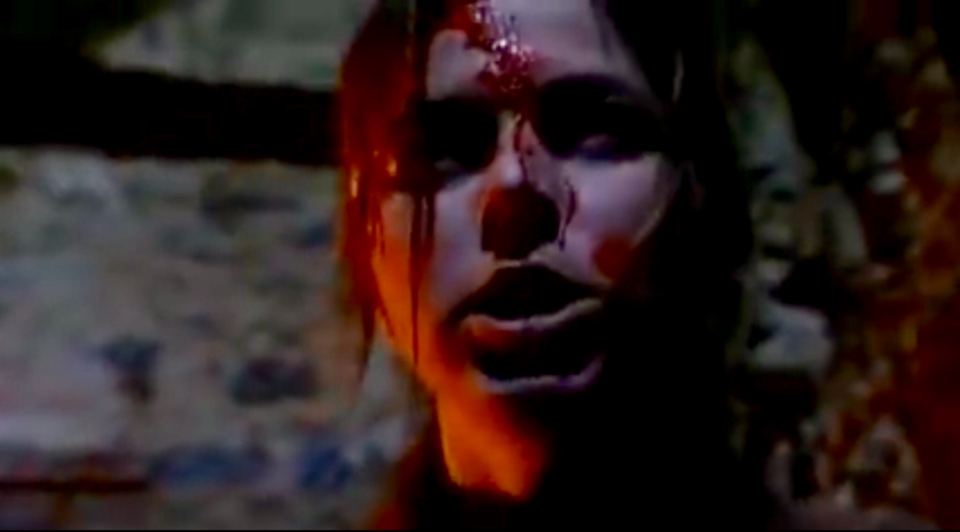
Considered one of Ireland’s first Irish-produced horror films and made on a micro-budget of just €110,000 ($116,000), Dead Meatcenters around Spanish tourist Helena (Marian Araujo) who is driving through the Irish countryside with her partner when they hit a person with their car. When attempting to transport the body, Helena’s boyfriend is bitten by the resurrected corpse, thus turning him into a zombie. After running into the local gravedigger Desmond (David Muyllaert), the pair must navigate the zombie outbreak caused by a new strain of bovine disease. Leaning heavily into its Night Of The Living Dead (1968)influence, Dead Meat is a demonstration of successful low-budget horror filmmaking. Despite its budgetary restrictions, the film contains impressive visual effects, like a zombie death involving a vacuum. Paired with quintessential Irish humor, Dead Meat makes for an all-around enjoyable zombie romp.
Grabbers (2012), dir. Jon Wright
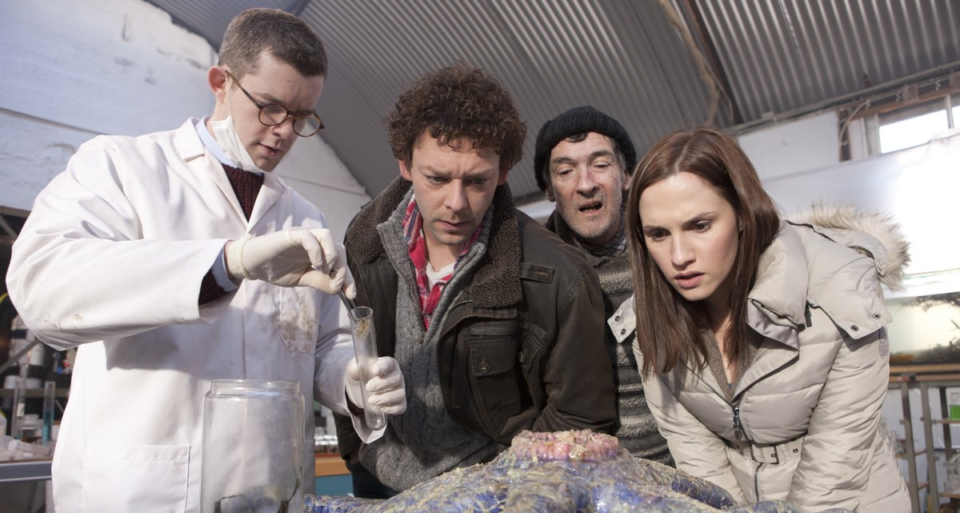
Do the Irish like a drink? Sure…but sometimes it’s a matter of survival, just like in Jon Wright’s Irish horror Grabbers. Starring Richard Coyle and Ruth Bradley as a pair of garda, Ciarán and Lisa, who begin to investigate what has caused the dead whales that have washed up on the beach of their remote island. Aided by eco-biologist Smith (Russell Tovey) and local drunk Paddy (played by Irish horror stalwart Lalor Roddy), Ciarán and Lisa must protect their community from an alien tentacled predator. How? By getting everyone heinously drunk, thus proving to be toxic to the blood-drinking creatures. Boasting expert creature design, as well as fantastic comical timing, Grabbers is ideal for fans of monster movies and creature features, utilizing an Irish stereotype to comedic effect.
Stitches (2012), dir. Conor McMahon
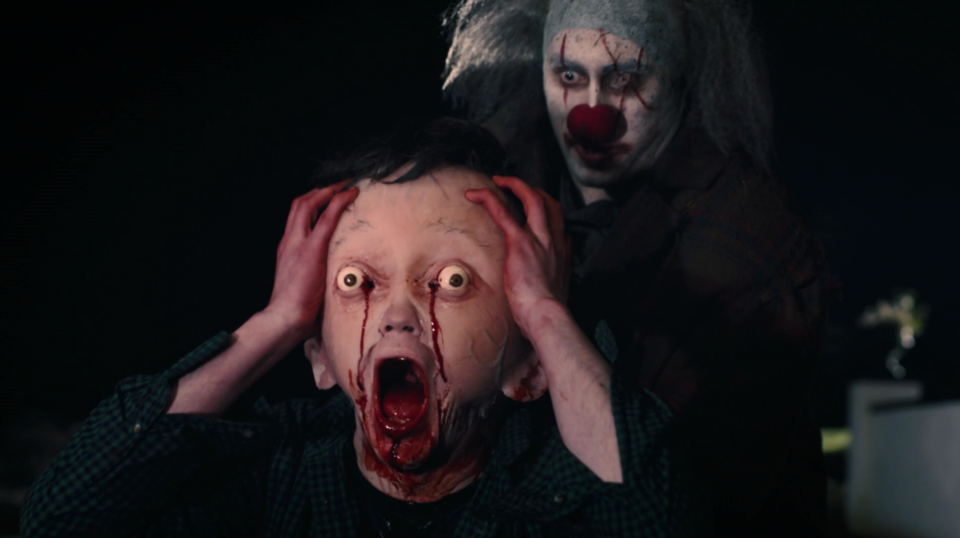
Starring Ross Noble as the titular character, Stitches is a comedy slasher that follows a group of Irish teenagers as they are stalked and murdered by a clown that has returned from the dead to exact revenge on those that caused his demise. It features full-on clown gags with homicidal consequences such as blowing up a teen’s intestines into the shape of a balloon animal and pulling a live rabbit out of the throat of another. Stitches, directed by the forerunner of Irish horror, Conor McMahon,is a gloriously gory predecessor to the recent Terrifier films.
The Hallow (2015), dir. Corin Hardy
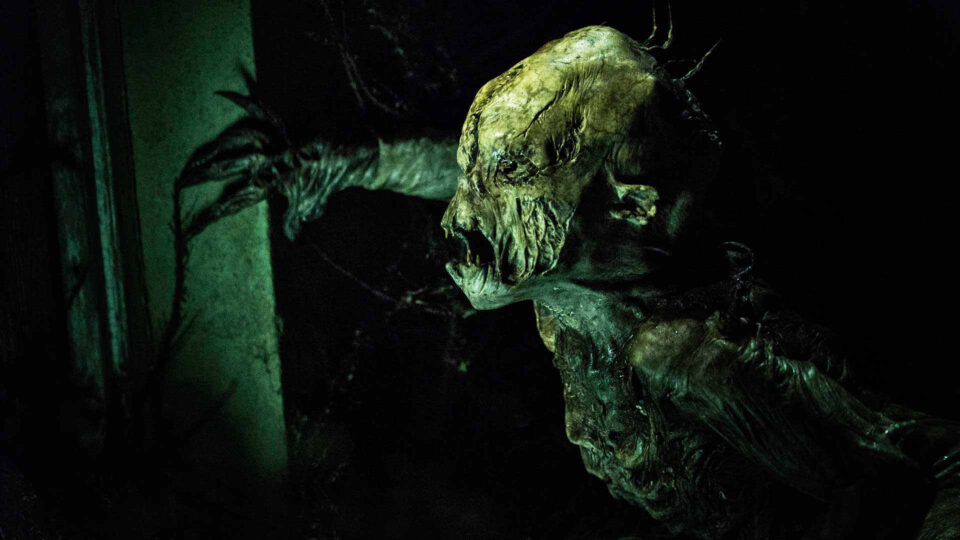
Directed by Corin Hardy (The Nun), 2015’s The Hallow is a fairytale horror based on Irish folklore. Adam, his wife Claire, and their infant son Finn move to the Irish wooded countryside so Adam can continue his work as a conservationist specializing in plants and fungi. They’re quickly warned by the hostile locals about the creatures that inhabit the forest surrounding their house as being full of faeries, banshees, and baby stealers. And just as quickly, the couple and specifically their child becomes the target of the creatures. Part eco-horror, part folk horror, The Hallow is the perfect cinematic accompaniment to current fungal horror The Last Of Us.
Without Name (2016), dir. Lorcan Finnegan
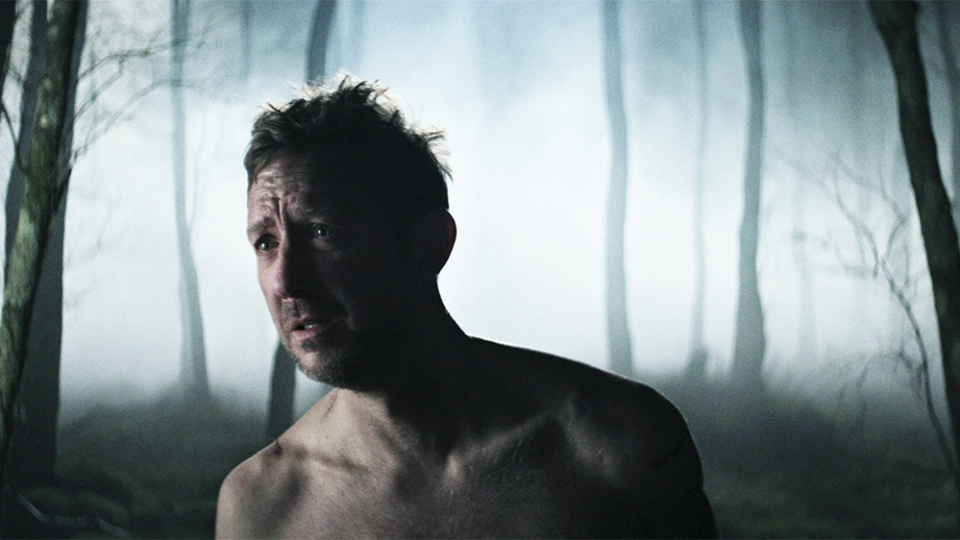
The feature film directorial debut from the director of Vivarium (2019) and the more recent Nocebo (2022), Without Name is another Irish eco-horror that focuses on a surveyor, Eric (Alan McKenna), stationed out in the woods that surround Dublin. Attempting to escape his family and responsibilities, Eric finds himself focusing inwards whilst being haunted by a shadow in the forest. Psychedelically frightening and overwhelming of the senses, Without Name is an exploration of self-imposed isolation and the devolution of the human mind, as well as hints of nature’s revenge against the industrialization of the land.
The Cured (2017), dir. David Freyne

Starring Elliot Page, Sam Keeley, and Tom Vaughn-Lawlor, The Cured is a zombie drama set in inner-city Dublin. Following an outbreak of the Maze Virus, a vaccine was developed to cure the infected, with 75% being brought back to be normal members of society, and the remaining 25% being incarcerated as The Resistant. Senan is a former infected who attempts to adjust back into the familial home with his sister-in-law and nephew. Despite being cured, society as a whole still harbors a large distrust of the cured, with many of the previously zombified being constantly discriminated against, culminating in a revolution with horrific consequences.
The Devil’s Doorway (2018), dir. Aislinn Clarke
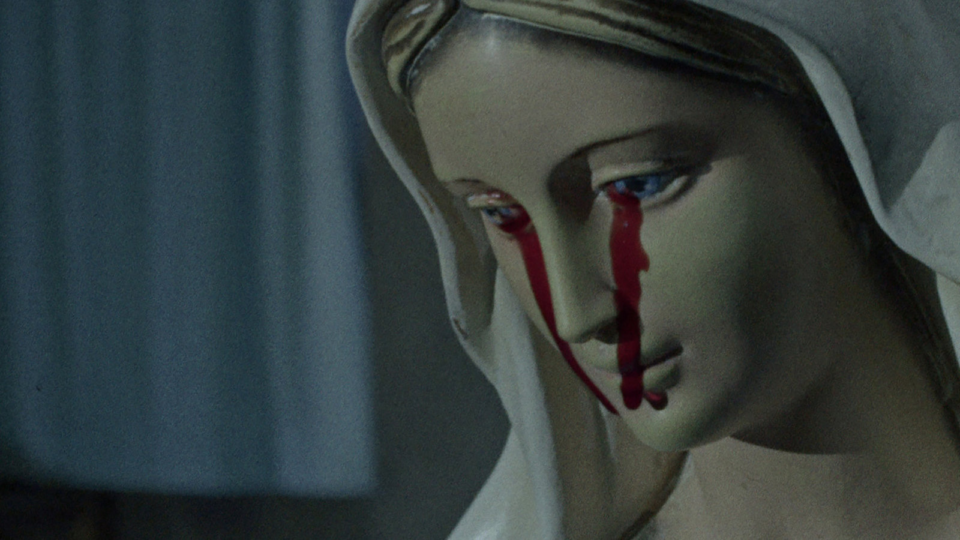
The Devil’s Doorway is a found-footage horror set in the 1960s in one of Ireland’s very real and horrific Magdalene Laundries where unwed pregnant women were sent away from the rest of society. Two Catholic priests Father Riley (Lalor Roddy) and Father Thornton (Ciaran Flynn) are sent to the laundry run by nuns under the abhorrent Mother Superior (Helena Bereen), to investigate a possible miracle. Whilst there, not only do they uncover the abuse perpetrated against the women who inhabit the laundry, but they also discover just how deep the evil runs through the institution. Depicting one of Ireland’s darkest and most disturbing periods in recent history, The Devil’s Doorway is terrifying, not only for its effective jump scares, but also for its portrayal of realistic events.
The Hole In The Ground (2019), dir. Lee Cronin
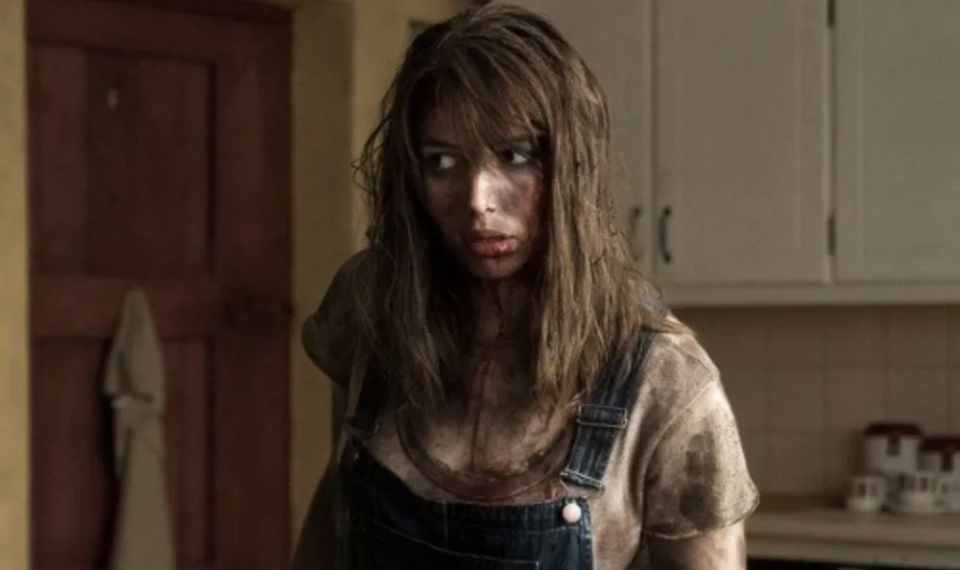
From the director of the upcoming Evil Dead Rise, The Hole In The Ground centers itself on the Irish folklore of a changeling, a child of the faerie folk, or Aos Sí, who has been swapped for a human child. Seána Kerslake stars as single mom Sarah who has relocated with her son to rural Ireland. There, she begins to suspect her child is not actually her child after discovering a giant sinkhole in the forest near her home. Touching on subjects such as parental depression and PTSD from an abusive relationship, The Hole In The Ground is a darkly tense supernatural folk horror playing on the fear of creepy, monstrous children.
Boys From County Hell (2020), dir. Chris Baugh
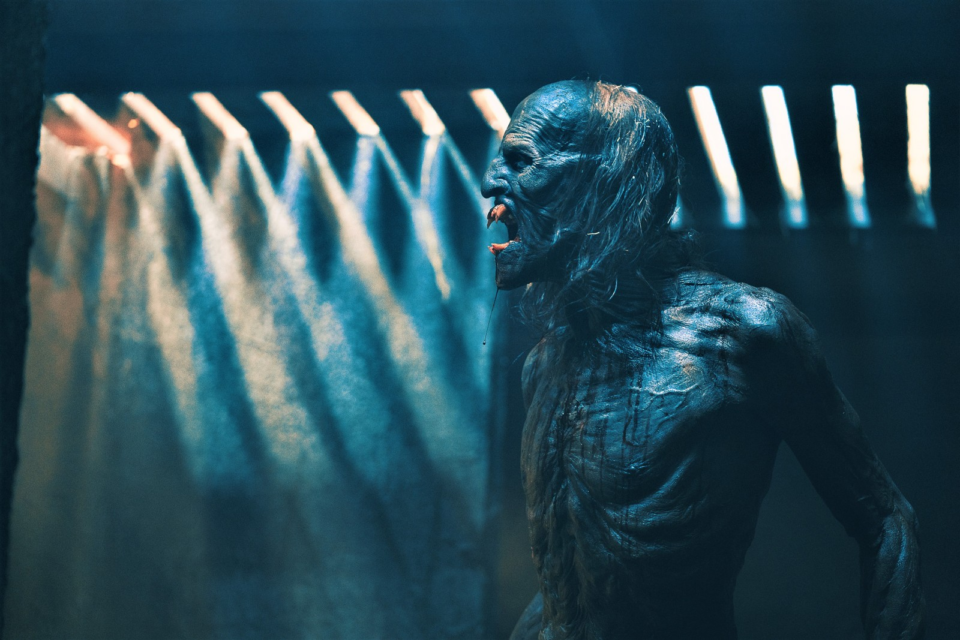
Set in the fictional town of Six Mile Hill, the vampire comedy Boys From County Hell portrays the actual legend of the Irish vampire creature the Abhartach, a possible inspiration for Bram Stoker’s Dracula. When the cairn (gravesite) of Abhartach is disturbed by the workers of a bypass, the construction crew must fight against him and protect their little close-knit community from the starving bloodsucker. Starring Louise Harland of Derry Girls fame, Boys From County Hell is a perfect amalgamation of Irish vampiric folklore and ultimate Irish humor.
Bring Out The Fear (2021), dir. Richard Waters
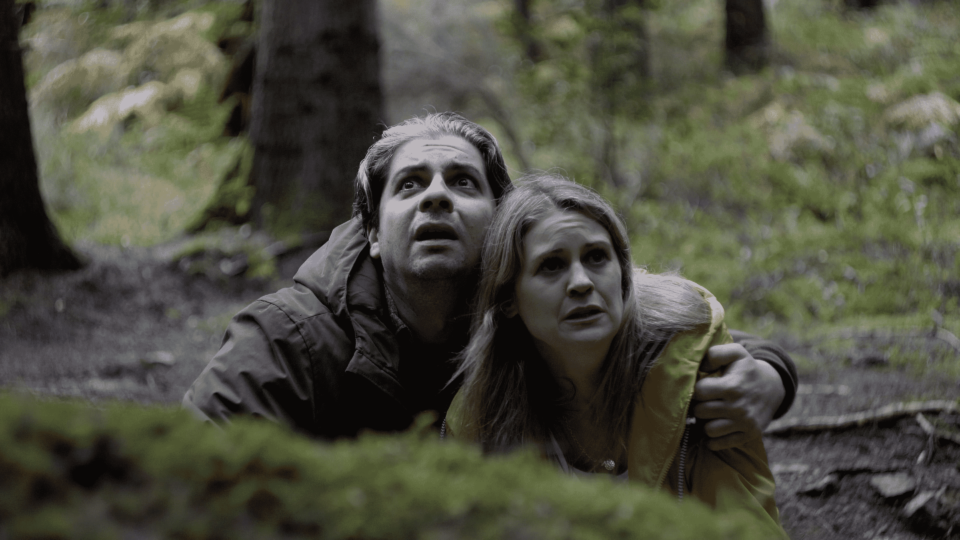
Continuing the theme that Irish forests are the most dangerous in all the world, Bring Out The Fear stars Ciara Bailey as Rosie and Tad Maori as Dan, a couple struggling to cling to their failing relationship. Dan wants marriage whilst Rosie is more inclined towards breaking up. As they journey deeper into a forest whilst on a hike, they soon begin to realize the woods are not about to let them leave. Riddled with confusion and a sense of the surreal, Bring Out The Fear is an ominous tale concerning the fallout of toxic relationships, tainted by addiction.
You Are Not My Mother (2021), dir. Kate Dolan
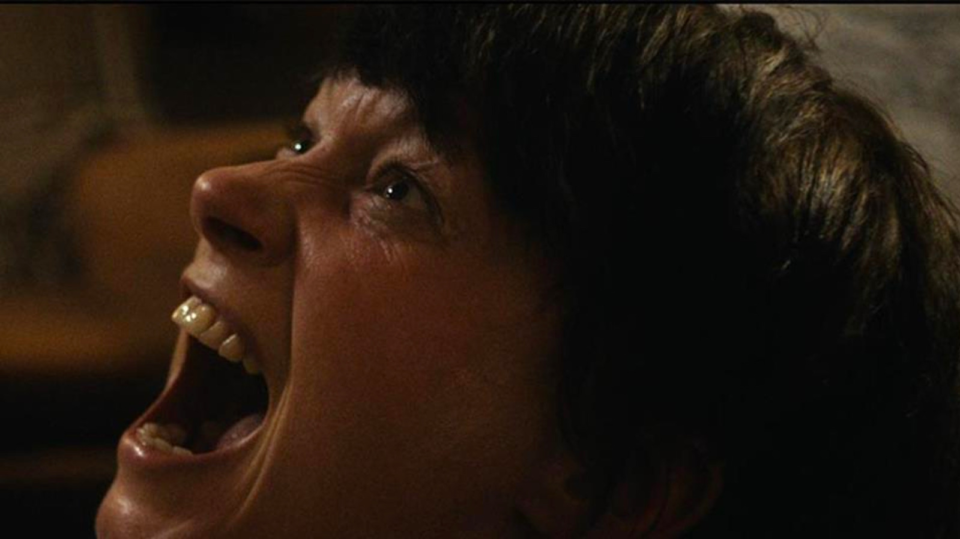
One of the breakout horror hits in recent years, this directorial debut feature by Kate Dolan is a poignant and harrowing portrayal of maternal mental illness and its effect on children. Char (Hazel Doupe) is a teenager from inner-city Dublin whose mother Angela (Carolyn Bracken) suffers from bipolar disorder. One day, Angela goes missing one day without explanation. On her return, Char begins to notice how much her mother doesn’t seem like herself. Soon, she learns her mother may have been swapped for a changeling. Battling with typical teenage problems like bullying, Char must find a way to send the changeling back to where it came from. Irish folk beliefs are intrinsically woven throughout the film, bringing a traditional belief system into modern urban Ireland, with terrifying results.
Let The Wrong One In (2021), dir. Conor McMahon
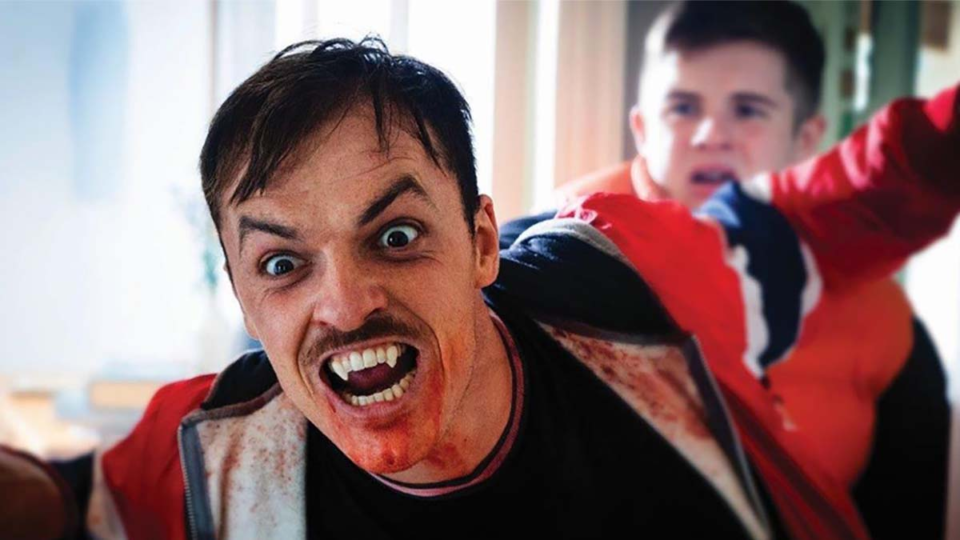
Another Irish vampire comedy, this time set in Dublin city, where menial supermarket worker Matt, who is far too nice for his own good, struggles with his interactions with his estranged drug addict brother Deco. When Deco is turned into a vampire, Matt soon realizes the whole city has been overrun by the bloodsuckers. An ode to all things vampires, Let The Wrong One In even stars Buffy The Vampire Slayer actor Anthony Head as a vampire hunter, with references to Dracula, as well as visual nods to Nosferatu (1922). Conor McMahon returns once again as a master of Irish horror.
Changeling (2021), dir. Marie Claire Cushinan & Ryan O’Neil
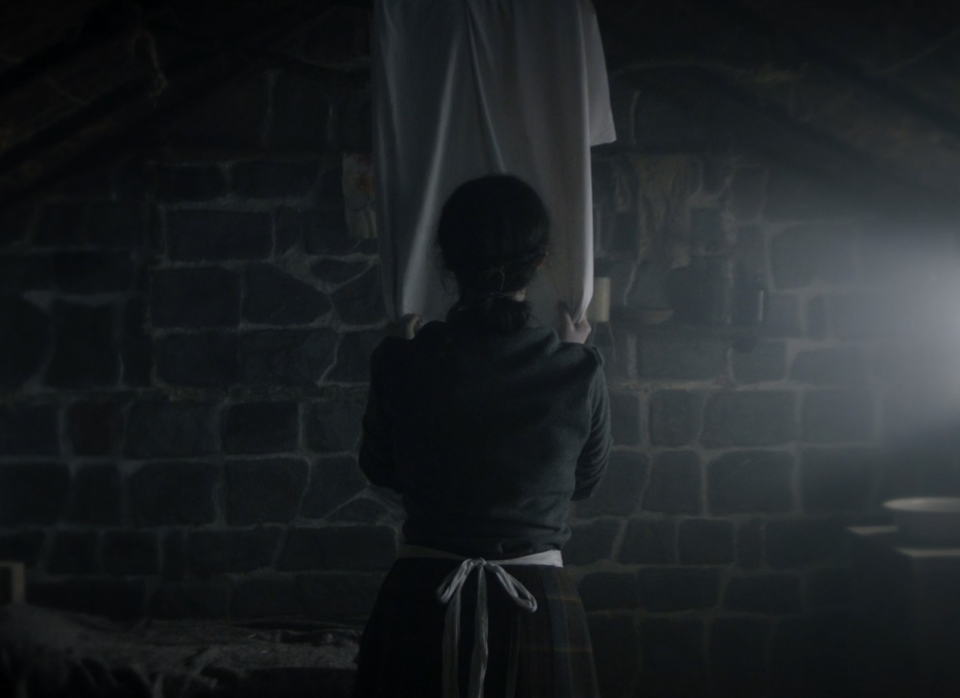
An Irish language short horror film, Changeling concerns itself with the tale of the changeling, this time told through the eyes of new parents struggling to make ends meet during the Great Hunger in 1879. Loosely based on the true story of Bridget Cleary, a woman set alight and murdered by her husband and father after being suspected of being a changeling, Changeling is a horrific historical depiction of not only the effect of postnatal mental illness on new parents, but also the way belief systems can have a dangerous hold over followers, often being a cover for more insidious conditions and psychosis.
Mandrake (2022), dir. Lynne Davison
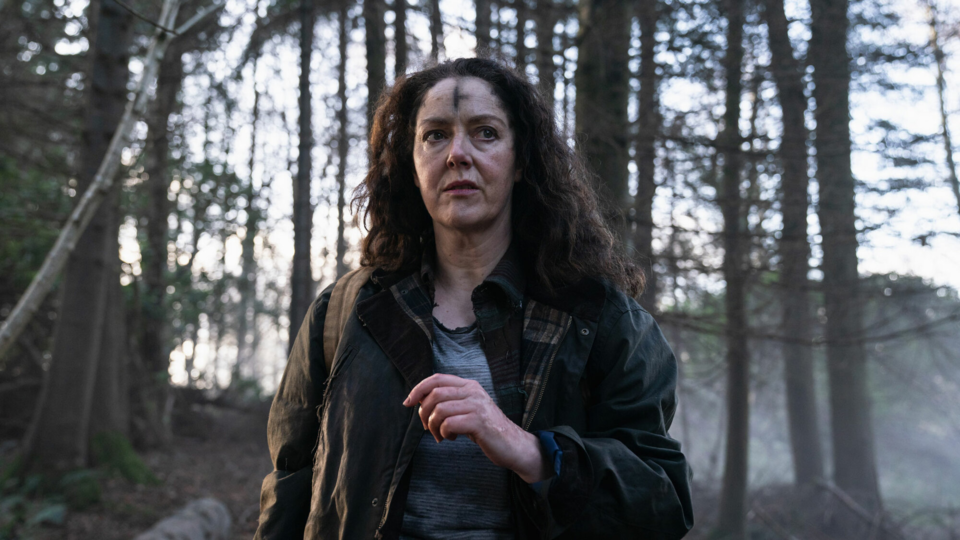
A horror from Northern Ireland, Mandrake stars Deirdre Mullins and Derbhle Crotty. The film touches on the tradition of the healing woman in Irish society and the herbal remedy of the mandrake root used for its fertility powers. Probation officer Cathy (Mullins) takes on the case of recently released local legend ‘Bloody’ Mary Laidlaw who was previously incarcerated for brutally murdering her abusive husband. Mandrake sees two mothers battling against each other to protect their vulnerable offspring, demonstrating the strength of basic maternal instinct through the depiction of witchcraft and occultism.
Lamb (2022), dir. Sinead O’Loughlin
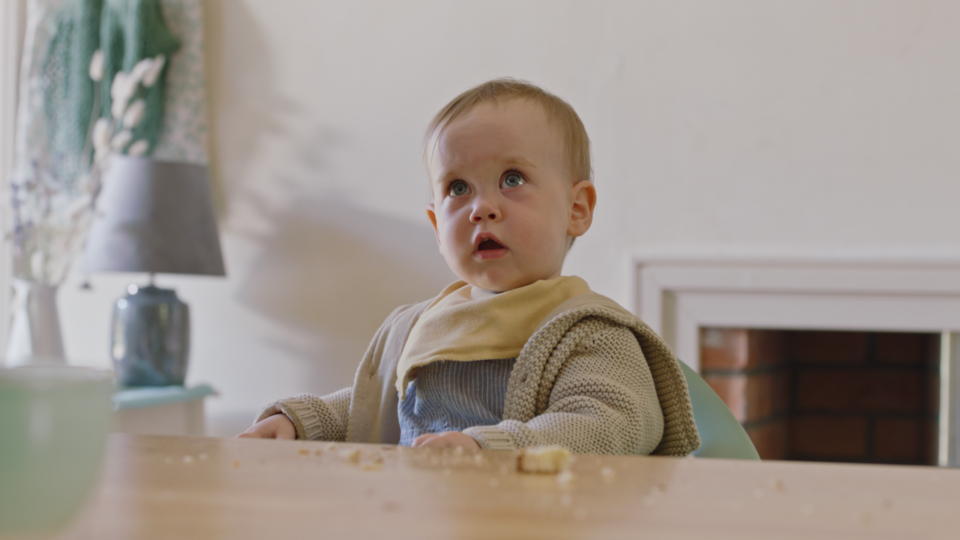
Having its world premiere at Tribeca 2021, short film Lamb has gone on to win awards and is currently on the festival circuit. Aoife Duffin plays Sarah, a mother who is carrying out her everyday routine with her young child when she is forcibly interrupted by intruder Paul, played by Éanna Hardwicke. As a battle of wills commences, Sarah must ensure the safety of her baby, through any means necessary. Tense and highly uncomfortable, Lamb is a portrayal of how entitled men feel to the space and comfort of women, starting from an extremely worrying young age.




